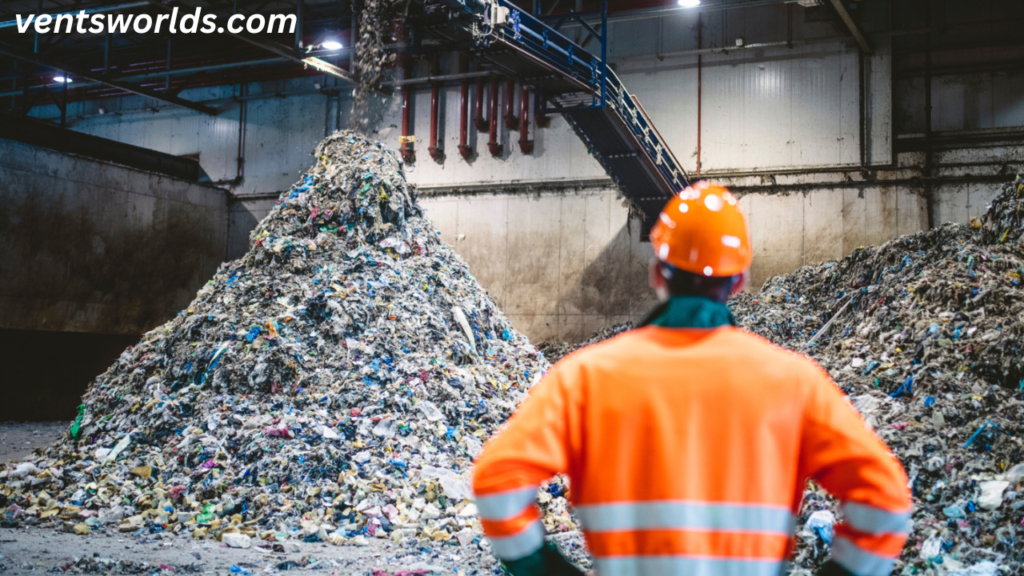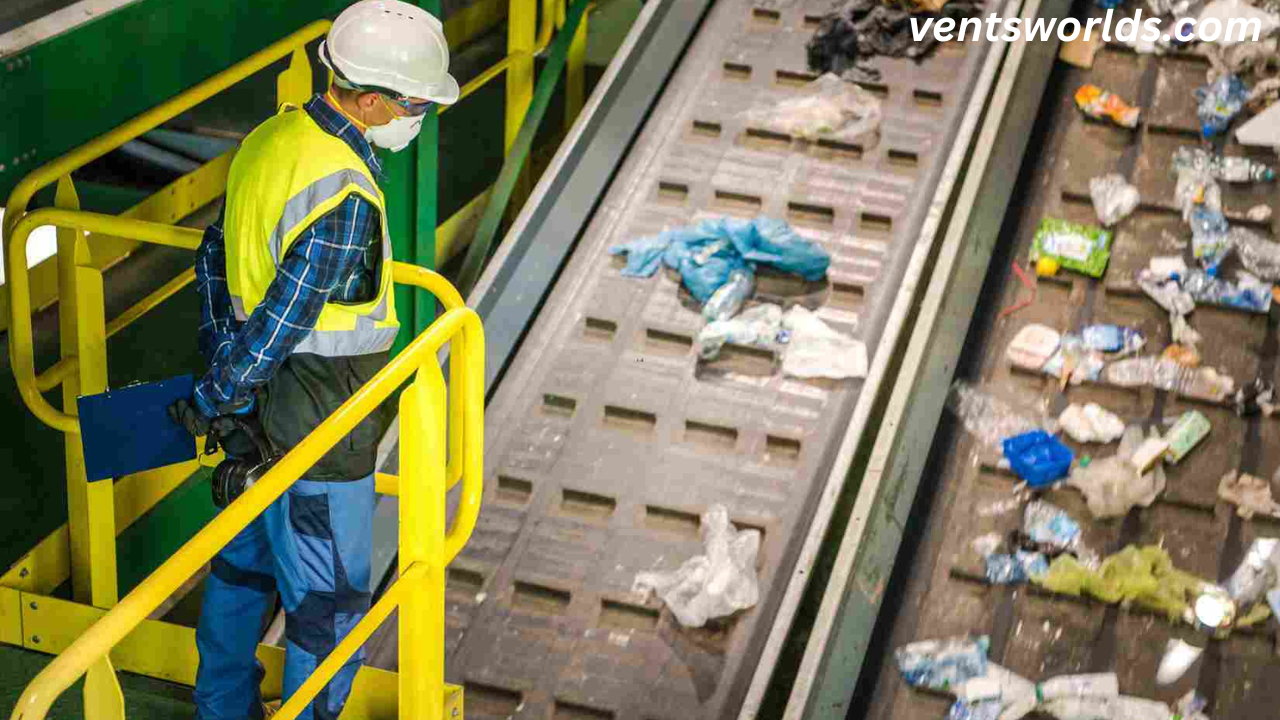waste management careers is often a behind-the-scenes operation, crucial for maintaining clean and sustainable environments. But as society becomes more conscious of environmental challenges, this industry has grown into one of the most waste management careers fields. A career in waste management not only promises job security but also offers an opportunity to make a significant impact on the planet’s well-being. Whether you are a recent graduate or waste management careers, the waste management sector has diverse and rewarding paths.
In this article, we will explore everything you need to know about starting a career in waste management, including available roles, waste management careers trends, and much more. If you’re passionate about sustainability and looking for a career that contributes positively to the environment, read on.
Understanding the Waste Management Industry

What is Waste Management?
waste management careers refers to the systematic collection, transport, processing, recycling, and disposal of waste materials. These materials can range from everyday household garbage to industrial byproducts and hazardous waste. The primary goal of waste management careers is to reduce the harmful effects that waste can have on the environment, human health, and wildlife. By properly managing waste, we not only keep our communities clean but also conserve waste management careers recycling and composting.
The field is vast, encompassing everything from traditional trash collection and landfill operations to advanced recycling waste management careers waste-to-energy processes. The sector serves municipalities, private companies, and government entities, each of which plays a vital role in waste management practices.
Evolution of Waste Management Practices
Historically, waste management was a basic task—collecting trash and dumping it into landfills. However, as concerns about environmental degradation grew, waste management evolved significantly. Today, there is an emphasis on reducing waste waste management careers recycling, composting, and sustainable disposal methods. In particular, the concept of the circular economy—where resources are reused, repaired, and recycled rather than discarded—has become central to modern waste management strategies.
The rise of innovative technologies such as waste-to-energy plants and advanced sorting systems has revolutionized the industry. These technologies not only make the process more efficient but also reduce the environmental footprint of waste waste management careers management becomes more high-tech and environmentally conscious, the job roles within this industry are evolving, requiring new skills and expertise.
The Global and Local Impact of Waste Management
waste management careers has a profound impact on both local communities and global sustainability efforts. At a local level, waste management is crucial for public health, as improper waste disposal can lead to diseases and pollution. By ensuring waste management careers of correctly, workers in the industry help prevent contamination of soil, water, and air, creating healthier communities.
On a global scale, the importance of waste management cannot be overstated. According to the World Bank, global waste is expected to increase by 70% by 2050, highlighting the growing need for professionals in this sector. Proper waste management is waste management careers climate change, as it prevents the release of harmful greenhouse gases from waste dumps and landfills.
Career Paths in Waste Management
Entry-Level Opportunities
waste management careers out, waste management offers various entry-level roles. Positions such as waste collection drivers, recycling plant operators, and waste sorting technicians are commonly available and typically require minimal experience. waste management careers involve manual labor but provide a crucial foundation for understanding the industry’s workings. Many of these positions can lead to opportunities for advancement, particularly as individuals gain experience and certifications.
In addition, internships and apprenticeships provide excellent pathways for entering the field. These opportunities allow you to get hands-on experience and learn from industry professionals, which can be invaluable in building a long-term career.
Mid-Level Roles
Once you have some experience under your belt, you can pursue mid-level roles such as recycling plant supervisor, waste management coordinator, or environmental health and safety officer. These positions typically require a combination of practical experience and formal education, such as a degree in environmental science or engineering.
Mid-level roles often come with increased responsibility, including overseeing teams, managing waste diversion programs, and ensuring that operations comply with local regulations. Workers in these roles also monitor performance metrics, optimize recycling processes, and contribute to sustainability initiatives within organizations.
Advanced and Specialized Careers
For those with advanced degrees or significant experience, the field offers specialized and high-level roles, such as environmental engineers, waste management consultants, and sustainability officers. These professionals play critical roles in designing waste management systems, advising governments and businesses on best practices, and contributing to large-scale sustainability projects.
Environmental engineers, for example, may develop innovative waste treatment technologies or lead efforts to reduce a company’s carbon footprint. Waste management consultants work with corporations to create comprehensive recycling and waste reduction strategies. Sustainability officers lead initiatives to reduce overall waste generation and promote greener practices within organizations.
Entrepreneurship in Waste Management
An increasingly popular career path is entrepreneurship within the waste management sector. With growing awareness of environmental issues, there is a rising demand for innovative solutions like waste-to-energy technologies, upcycled products, and zero-waste businesses. If you have an entrepreneurial spirit, you could create a business focused on innovative recycling processes, offer waste management consulting services, or start a waste-to-energy facility.
By creating or investing in these ventures, you can contribute to the circular economy while also building a successful business.
Skills and Education Required
Educational Pathways
While some entry-level waste management jobs require only a high school diploma or equivalent, more advanced positions typically require a college degree. Many universities offer specialized degrees in environmental science, sustainability, and industrial engineering, which provide the knowledge necessary to pursue mid- and high-level roles in waste management.
In addition to formal education, many professionals enhance their qualifications by obtaining certifications. For example, certifications like HAZWOPER (Hazardous Waste Operations and Emergency Response) or SWANA (Solid Waste Association of North America) can be essential for safety and compliance roles.
Technical and Soft Skills
In addition to academic credentials, technical skills are vital in waste management careers. For instance, proficiency in data analysis and problem-solving is crucial, especially for those involved in optimizing waste processes or designing waste management systems. Familiarity with technology such as Geographic Information Systems (GIS) and waste tracking software is becoming increasingly important.
Soft skills, like communication and leadership, are just as essential. Waste management often involves working with teams, coordinating between multiple stakeholders, and educating the public about sustainability efforts. Strong leadership, collaboration, and organizational skills are necessary for advancing in this field.
Certifications and Licenses
Certifications provide credibility and increase employability in the waste management sector. For instance, obtaining a Commercial Driver’s License (CDL) is essential for truck drivers working in waste collection, while specialized certifications in hazardous waste handling or environmental management are required for certain roles.
Ongoing professional development, through workshops, courses, and industry seminars, is also crucial to stay up-to-date with new regulations and technologies in the field.
Industry Outlook and Opportunities
Job Market Trends and Projections
As the world faces increasing waste production and environmental challenges, the demand for skilled waste management professionals is expected to rise. According to the U.S. Bureau of Labor Statistics, the employment of waste management workers is projected to grow at a steady pace, with roles in recycling and sustainability showing particularly strong demand. The rise of sustainable businesses and green technologies will drive further job opportunities in the field.
Salary Expectations and Job Satisfaction
The salary for waste management roles varies widely depending on experience, location, and the specific job. Entry-level positions in waste collection typically start around $30,000 annually, while mid-level roles such as recycling supervisors can earn between $50,000 to $70,000 per year. Specialized roles in environmental engineering or waste management consulting can earn upwards of $90,000 annually.
Overall, the industry offers job security, room for growth, and opportunities to contribute to a larger environmental cause, making it a fulfilling and financially rewarding field.
Geographic Hotspots and Sector Demand
Certain regions, particularly urban areas and industrial zones, offer the highest demand for waste management professionals. Additionally, sectors such as e-waste recycling, hazardous waste management, and sustainability consulting are seeing a surge in demand.
Conclusion
A career in waste management provides not only job stability but also the chance to contribute to sustainability efforts that benefit both local communities and the planet. With various roles available, from entry-level positions to specialized careers, this industry offers something for everyone. Whether you’re passionate about working with cutting-edge technologies, solving complex environmental problems, or starting your own green business, waste management offers diverse opportunities for growth and innovation.
FAQs
Is waste management a good long-term career?
Yes, waste management is a rapidly growing field with long-term job security due to increasing global focus on sustainability and waste reduction.
What qualifications do I need to work in waste management?
A high school diploma may suffice for entry-level jobs, but advanced roles typically require degrees in environmental science, engineering, or related fields.
How can I transition into the waste industry from another field?
Consider gaining relevant certifications, seeking internships, and acquiring transferable skills such as project management or sustainability expertise.
Are there remote or hybrid roles in waste management?
Some positions, particularly in consulting and policy roles, may offer remote or hybrid work options.
What are the most in-demand jobs in waste management today?
Sustainability officers, environmental engineers, recycling specialists, and waste-to-energy professionals are in high demand.
You May Also Read: https://ventsworlds.com/animal-cell/

